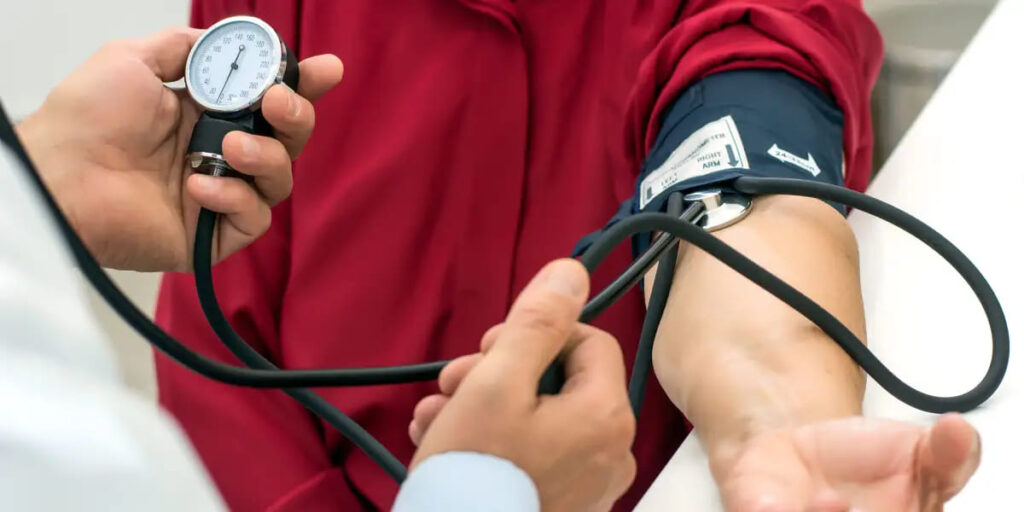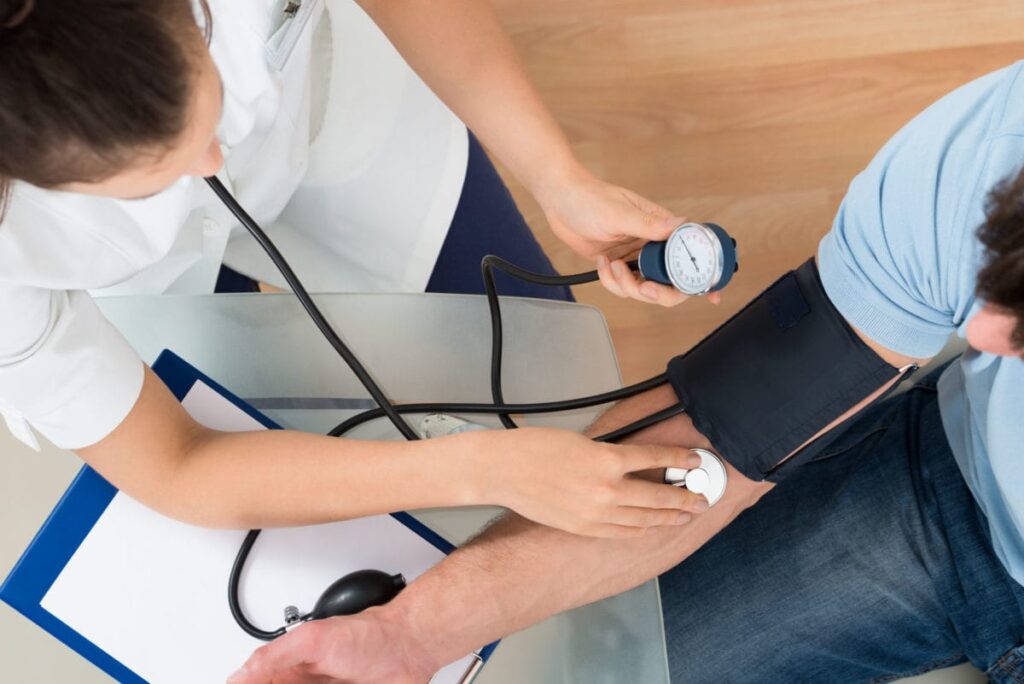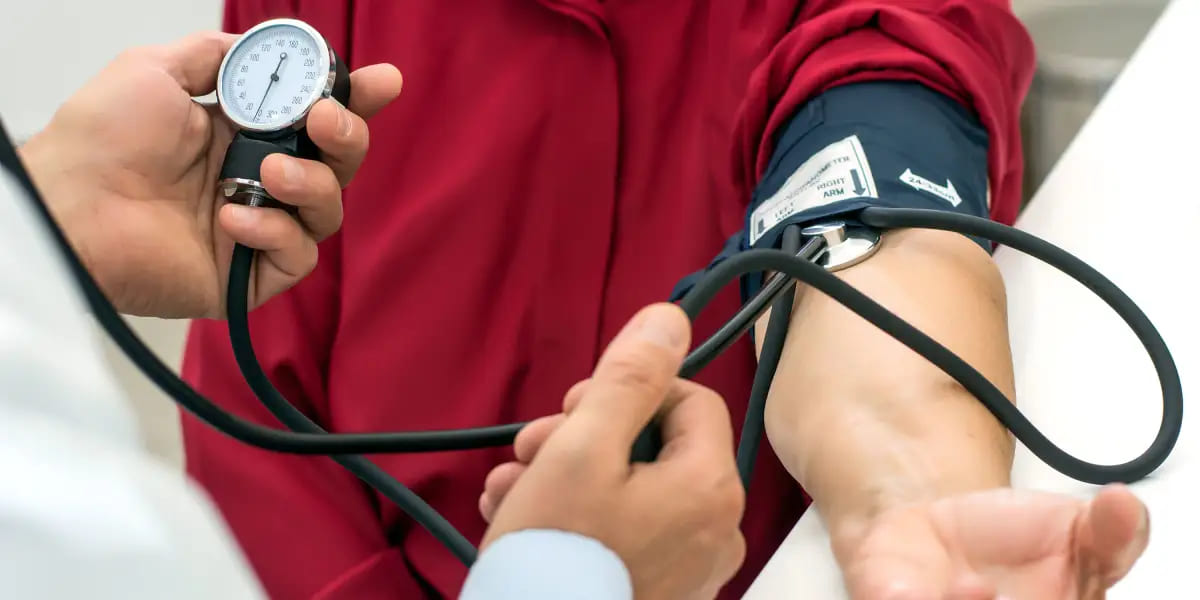The body responds to pain by signalling an issue. It is an uncontrollable nerve system reaction. This implies that the brain will detect pain on its own and act to prevent the body from suffering an injury.

A prick, tingling, sting, burn or aching are examples of different types of pain. It may be felt everywhere or just in one place. It might be intermittent (chronic) or it can happen only once and go away. Blood pressure can be impacted by both recent and ongoing pain.
Acute pain can raise blood pressure. Reduced pain sensitivity is related to hypertension.
The nervous system will trigger a process known as the baroreceptor response when it detects pain. The mechanism that regulates blood pressure is this one. The response instructs the body to tighten blood vessels, raising blood pressure. This will go on until there is no longer any pain felt. The baroreceptor reflex will be prompted to relax blood vessels and bring blood pressure back to normal by this decreased sensitivity to pain.
Acute pain is a sudden, sudden onset of pain. It could also be brought on by sickness, harm, or inflammation. The link between this kind of discomfort and pain sensitivity and resting blood pressure is inverse. During this form of discomfort, blood pressure should return to normal quite fast.
Chronic pain develops from acute pain that does not go away. Weeks, months, or even years may pass before it stops. This type of pain is associated with sprains, infections, or ongoing medical conditions. Chronic pain can occur without prior injury or physical injury.
One study showed that people with persistent back pain had higher resting blood pressure than those who had no pain for more than two years.

High blood pressure pain can be treated either medically or without them. The following lifestyle adjustments might lower blood pressure and reduce pain :
- Healthy diet :- Consume more fruits, vegetables, whole grains, and dairy products with reduced fat, fish, poultry, beans, nuts, and vegetable oils. Limit your intake of salt, sugar, saturated fats, and trans fats (typically included in processed and fried meals).
- Avoid alcohol :- Blood pressure can be raised by as little as one or two drinks per day. See your doctor about the recommended daily alcohol intake.
- Daily exercise :- Frequent physical activity and exercise help reduce and regulate blood pressure levels. Find out with your doctor what activities are suitable for you.
- Maintain a healthy weight :- Keeping a healthy weight might control blood pressure. Those who are overweight or obese can lower their blood pressure by losing even only 3% to 5% of their body weight.
- Quit smoking :- Blood vessel constriction and blood pressure rise as a result of smoking.
- Manage stress :- Practice meditation, physical activity, and self-care to manage mental and physical stress.
- Get enough sleep :- Sleep for 7 to 9 hours every night. Establishing a relaxing evening routine, keeping the room cold and dark, and going to bed and waking up at regular times will all help you sleep better.
Visit Texas Specialty Clinic for treatment if you are suffering from pain and blood pressure. Our doctors are well experienced in treating pain and blood pressure.

